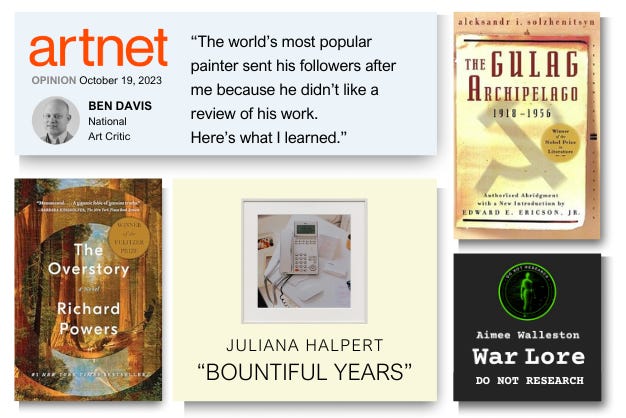Tell us what you read in 2024 that …
… ripped open a rabbit hole that you fell down for a while.
War Lore by Aimee Walleston
… made you question your life choices.
The Overstory by Richard Powers
… you’d recommend to other arts writers.
"The World’s Most Popular Painter Sent His Followers After Me Because He Didn’t Like a Review of His Work. Here’s What I Learned" by Ben Davis in Artnet
… was a guilty pleasure.
Juliana Halpert’s artist statement for her exhibit "Bountiful Years"
... was old, a little obscure and absolutely delicious.
The Gulag Archipelago by Aleksandr Solzhenitsyn
These writers have helped me think about fan armies, civil war, political prisonerhood and Millennial precarity, not just in the abstract but through the scrim of contemporary culture. They give good info and analysis, without catastrophizing.
It’s helpful to see how other writers wrestle with forces that, let’s be honest, are beyond the scope of art critics to fix: social media, geopolitics, environmental collapse. This is writing as agency, short of control. I like these pieces for their explanatory power. More than describing a condition, they rummage around in the wires behind the imagery that’s the ostensible focus of their criticism. The writers come from different angles, the confessional memoir calibrated for virality or a theoretical analysis of a movie trailer.
But all preserve an element of personal risk — these are tries, not declarations — and vulnerability, more or less performative and self-aware. These writers remind me that other people are living through and writing about a shared time — that I have contemporaries.




